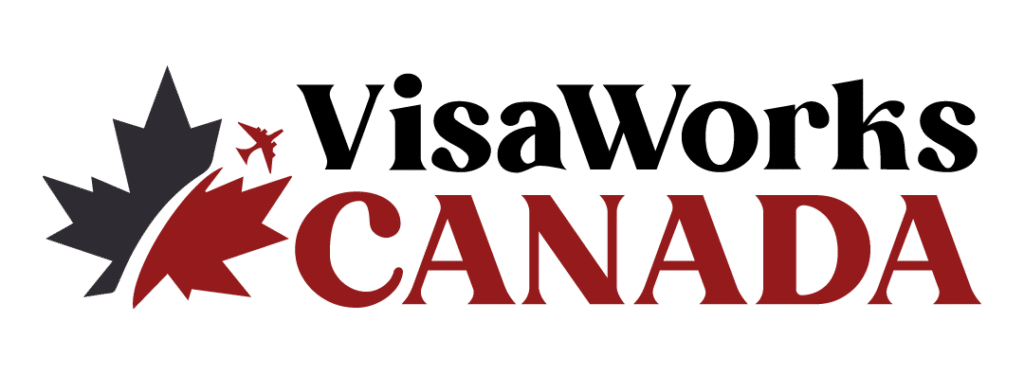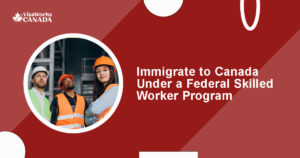Securing a work permit in Canada opens doors to diverse employment opportunities in one of the world’s most welcoming and economically robust countries. Navigating the process can seem daunting, but with the right information and guidance, obtaining a work permit becomes achievable for many aspiring individuals. In this article, we’ll explore the essential steps and considerations for obtaining a Canadian work permit, from understanding the types of permits available to navigating the application process and planning for a successful transition to working and living in Canada.
Understanding Canadian Work Permits
In Canada, there are two primary types of work permits: open work permits and employer-specific work permits. Open work permits allow individuals to work for any employer in Canada, while employer-specific permits restrict employment to a specific employer and job. To be eligible for a work permit, individuals must meet certain criteria, including age requirements, educational qualifications, and language proficiency. Understanding the nuances of each permit type and the eligibility criteria is crucial for a successful application process.
Also read: Work Permit in Canada: Who is Eligible to Work?
Researching Job Opportunities in Canada
Before applying for a work permit, it’s essential to research job opportunities in Canada and identify industries and occupations in demand. Exploring the Canadian job market through online job boards, networking, and professional associations can provide valuable insights into available positions and potential employers. Building professional connections and networking with individuals in your desired field can also enhance your job search efforts and increase your chances of securing a job offer from a Canadian employer.
Obtaining a Job Offer from a Canadian Employer
Securing a job offer from a Canadian employer is a critical step in the work permit application process. To increase your chances of receiving a job offer, craft a compelling resume and cover letter tailored to the Canadian job market. Highlight your relevant skills, qualifications, and experiences that align with the job requirements. Once you’ve submitted your application, prepare for interviews with Canadian employers by researching the company, practising common interview questions, and showcasing your enthusiasm and suitability for the role.
Applying for a Canadian Work Permit
Once you’ve obtained a job offer from a Canadian employer, it’s time to apply for a work permit. The application process varies depending on whether you’re applying online or through a paper application. Regardless of the method, ensure you have all the required documents and supporting evidence, including your job offer letter, proof of qualifications, and a valid passport. Completing the work permit application form accurately and providing truthful information is crucial for a successful application.
Submitting the Work Permit Application
After completing the application form and gathering all necessary documents, submit your work permit application as per the instructions provided by Immigration, Refugees, and Citizenship Canada (IRCC). If applying online, create an account on the IRCC website and follow the prompts to submit your application electronically. If applying through a paper application, carefully package your documents and submit them to the designated mailing address. Be sure to pay the applicable application fees and adhere to any processing times provided by IRCC.
Explore Your Opportunities Today with VisaWorks Canada Ltd.! From expert visa services to comprehensive guidance on permanent residency, study visas, and business ventures in Canada, we’re here to help you navigate every step of your journey. Contact us now for personalized assistance and take the first step towards your Canadian dream!
Document Verification and Biometric Collection
Following the submission of your work permit application, you may be required to attend a biometric appointment to provide fingerprints and a photograph. Additionally, IRCC may request additional documents or information to verify your eligibility for a work permit. It’s essential to respond promptly to any requests from IRCC and ensure the accuracy and completeness of the information provided to avoid delays or complications in the application process.
Waiting Period and Processing Times
Once you’ve submitted your work permit application, there will be a waiting period while IRCC processes your application. The processing times vary depending on various factors, including the volume of applications received and the complexity of individual cases. While waiting for a decision on your application, you can check the status of your application online through the IRCC website. It’s essential to be patient during this period and refrain from contacting IRCC unless necessary.
Receiving the Work Permit Approval
Upon approval of your work permit application, you will receive notification from IRCC confirming the approval and providing details of your work permit, including any conditions or restrictions. It’s crucial to review the information carefully and ensure that you understand the terms of your work permit, including the expiry date and any conditions attached to it. Once you have received your work permit approval, you can make plans to travel to Canada and commence your employment as per the terms of your permit.
Planning Your Move to Canada
Before relocating to Canada, it’s essential to make necessary arrangements for travel, accommodation, and healthcare. Ensure that you have valid health insurance coverage for your stay in Canada and familiarize yourself with the Canadian healthcare system. Research housing options in your intended destination and make arrangements for temporary or permanent accommodation. Additionally, take the time to learn about Canadian culture, customs, and practical matters such as transportation and banking to ease your transition to life in Canada.
Arriving in Canada and Starting Your Job
Upon arrival in Canada, present your work permit to Canadian immigration authorities at the port of entry. Once admitted to Canada, report to your employer and commence your employment as per the terms outlined in your job offer and work permit. Take the time to familiarize yourself with your new workplace, colleagues, and responsibilities, and communicate openly with your employer to ensure a smooth transition into your new role. Embrace the opportunity to immerse yourself in Canadian culture and contribute positively to your new community.
Maintaining Compliance with Canadian Immigration Laws
As a temporary foreign worker in Canada, it’s essential to maintain compliance with Canadian immigration laws and regulations throughout your stay. Familiarize yourself with your rights and responsibilities as a foreign worker, including reporting changes in employment or personal circumstances to IRCC. Stay informed about any updates or changes to Canadian immigration policies that may affect your status or eligibility for renewal of your work permit. Seeking legal advice or guidance on immigration matters can provide clarity and peace of mind as you navigate your journey in Canada.
Exploring Pathways to Permanent Residency
While working in Canada on a temporary work permit, you may explore pathways to permanent residency through various immigration programs offered by the Canadian government. Programs such as Express Entry and Provincial Nominee Programs provide opportunities for skilled workers to transition from temporary to permanent residency status based on factors such as education, work experience, and language proficiency. Understanding the eligibility criteria and application process for permanent residency can help you plan your long-term goals and aspirations in Canada.
Overcoming Common Challenges and Pitfalls
Moving to a new country for work can present challenges and obstacles along the way. Language and cultural barriers, employment challenges, and administrative hurdles in the application process are common issues that many newcomers to Canada may face. However, with determination, resilience, and support from your employer and community, you can overcome these challenges and thrive in your new environment. Seek assistance from immigration professionals, settlement organizations, and support groups to address any concerns or difficulties you encounter during your transition to life in Canada.
Resources and Support for Newcomers to Canada
Fortunately, newcomers to Canada have access to a wide range of resources and support services to help them settle and integrate into their new environment. Governmental agencies, immigration services, and settlement organizations offer assistance with immigration processes, language training, and employment support. Additionally, online forums and social networks provide platforms for newcomers to connect with fellow expatriates and share experiences and advice. Taking advantage of these resources and support networks can facilitate a smooth transition and enhance the overall settlement experience in Canada.
Conclusion
Securing a work permit in Canada is an important milestone for individuals seeking employment opportunities and exploring new possibilities in the country. By understanding the requirements, navigating the application process, and seeking support when needed, prospective foreign workers can embark on a rewarding journey towards temporary employment and potential pathways to permanent residency. With careful planning, perseverance, and a positive attitude, the dream of working and living in Canada can become a reality for many aspiring individuals.









